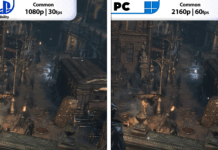UPDATE: Over the weekend, Razer removes references to 'N95 grade' from its Zephyr marketing materials.
UPDATE 2: In a statement, Razer confirms that «to avoid any confusion, we are in the process of removing all references to ‘N95 Grade Filter’ from our marketing material.» It also pledged to reach out to existing customers to «clarify» what the mask can and can’t do.
UPDATE: Over the weekend, Razer removed references to «N95 grade» from its marketing web pages, and updated the fine print on its «The Science Behind Razer Zephyr» website.
Before:
«Razer Zephyr is not a medical device, respirator, surgical mask or personal protective equipment (PPE) and is not meant to be used [in] medical or clinical settings.»
After:
«The Razer Zephyr and Zephyr Pro are not certified N95 masks, medical devices, respirators, surgical masks, or personal protective equipment (PPE) and are not meant to be used in medical or clinical settings.»
The company did not publicly announce the removal of «N95 grade» from its website. On Saturday, it simply posted a tweet that said it has «taken feedback and guidance from regulatory agencies to establish our testing protocols for the Razer Zephyr and Razer Zephyr Pro,» which includes a link to the aftermentioned science website. Note that on its page, Razer does not say the masks are «certified,» only that they «took guidance» from regulators.
Razer has not yet responded to PCMag’s request for comment from last week.
Original Story 1/7:
Not all «N95s» are the same.
Gaming PC maker Razer plunged into the protective mask world during COVID, selling paper masks, cloth masks and its pièce de résistance—the Razer Zephyr, a light-up wearable air purifier with what it says are «N95-grade filters.» At CES this week, it unveiled a new version, the Razer Zephyr Pro, which amplifies your voice from behind the mask.
Following that announcement, my Twitter feed exploded with rage against the company’s «N95» claim. Naomi Wu, an influencer in the 3D-printing world, argued that having an «N95 Grade filter» doesn’t make something an N95 mask. But most people will see that phrase as equivalent to «N95 mask,» no matter how many fine-print disclaimers Razer adds, she says.
In the US, the CDC’s National Institute for Occupational Safety and Health (NIOSH) certifies that N95 respirators «used in an occupational setting meet the minimum construction, performance, and respiratory protection standards.» It also maintains a website of NIOSH-approved N95 respirators listed by manufacturer from A-Z. Razer’s products are not on the NIOSH list.
In its fine print, Razer acknowledges that the Razer Zephyr and Zephyr Pro «are not medical devices, respirators, surgical masks, or personal protective equipment (PPE) and are not meant to be used in medical or clinical settings.» It also says that while it has «adopted standards» set forth by NIOSH, it has not been certified by the agency.
When we reviewed the original Zephyr, Razer told us it worked with a company called Intertek to perform testing for Bacterial Filtration Efficiency (BFE) certification. It also filed the Zephyr with the FDA. We contacted Razer, but have not yet heard back.
Wu says she raised a complaint with the CDC. A lot of the problem here is around tricky usage of medical and legal terms that the layperson can’t be expected to understand. For example, the designation between «adopting standards» and getting certified by NIOSH.
In the last day, Razer appears to have added a section to its Zephyr product page comparing its mask to other safety solutions.
I don’t have any way of actually testing mask efficiency, but marketing contradictions make the whole thing look shifty. It says the Zephyr is not personal protective equipment (PPE), but at the top of its product page, it says the Zephyr uses «replaceable N95 Grade filters for daily protection.» So if the Zephyr is not PPE, why claim this personal equipment provides protection? It feels disingenuous. Ultimately, the disclaimer below shows this isn’t the protection it intuitively appears to be. Unless the mask is properly certified, wearing it might as well be Fallout cosplay.
I’m being picky here. Fabric masks with filters are useful, according to several studies, just not to N95-certified levels. I mostly wear a set of ratty, overused KF94s that are probably at this point more placebo effect than anything else.
But as my mentions have shown recently, a lot of people do care about the use of «N95» here, and Razer’s marketing feels over the line. It should stop using that term.
We’ll update this story if and when we hear back from Razer.
Sign up for What’s New Now to get our top stories delivered to your inbox every morning.
This newsletter may contain advertising, deals, or affiliate links. Subscribing to a newsletter indicates your consent to our Terms of Use and Privacy Policy. You may unsubscribe from the newsletters at any time.
Your subscription has been confirmed. Keep an eye on your inbox!
Advertisement
PCMag’s lead mobile analyst, Sascha Segan, has reviewed more than 1,100 smartphones and other gadgets since 2004. He’s tested every generation of the iPhone and covered Android phones since the very first one. His reviews also include ebook readers, hotspots, mobile networks, and tablets.
Sascha runs PCMag’s Fastest Mobile Networks drive-test projects throughout the US and Canada and writes a weekly Race to 5G newsletter, focusing on developments in the mobile and 5G worlds.
He is also a multiple-award-winning travel writer. Sascha’s first computer was an Atari 800, and his first cell phone was a Qualcomm Thin Phone. He lives in Queens, NY.
PCMag.com is a leading authority on technology, delivering Labs-based, independent reviews of the latest products and services. Our expert industry analysis and practical solutions help you make better buying decisions and get more from technology.
© 1996-2022 Ziff Davis. PCMag Digital Group
PCMag, PCMag.com and PC Magazine are among the federally registered trademarks of Ziff Davis and may not be used by third parties without explicit permission. The display of third-party trademarks and trade names on this site does not necessarily indicate any affiliation or the endorsement of PCMag. If you click an affiliate link and buy a product or service, we may be paid a fee by that merchant.












